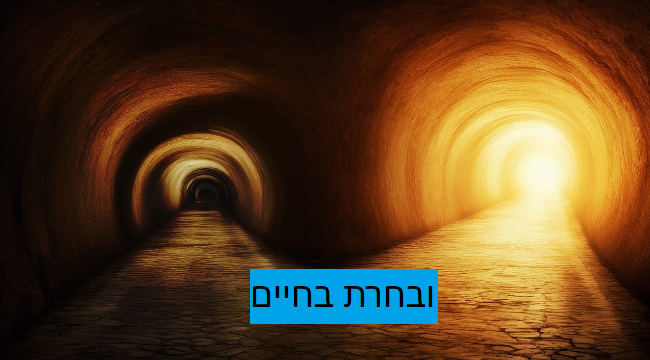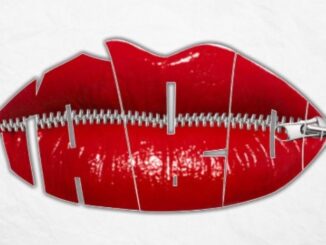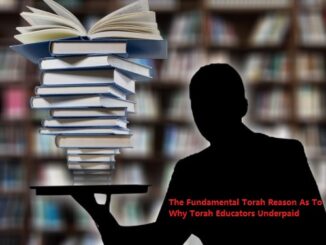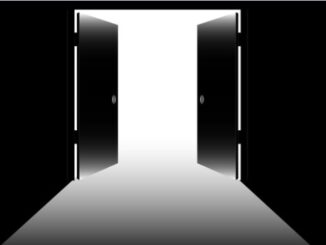
We often hear the concept of Gan Eden and Gehenim (paradise and hell) as if it is some kind of abstract concept which will take place after death. However, we see the contrary in our daily prayers and in the Gemurah.
The Torah mentions that if one is good, they will have good in this world, but if one sins and does not repent, they will be punished in this world. As we say this in our daily prayers in Ani Mamin every day, Hashem rewards us for the good and punishes us for the bad we do.
We elaborate on this topic in our daily morning prayers of Eli Devarim where it discusses the mitzvahs that have unlimited reward and other Mitzvahs for which the interest reward we get in this world and the principal reward for the Mitzvahs is received in the world to come.
Furthermore: the Gemurah in Nedarim 8b states:
דְּרַבִּי שִׁמְעוֹן בֶּן לָקִישׁ, דְּאָמַר: אֵין גֵּיהִנָּם לָעוֹלָם הַבָּא, אֶלָּא הַקָּדוֹשׁ בָּרוּךְ הוּא מוֹצִיא חַמָּה מִנַּרְתִּיקָהּ, צַדִּיקִין מִתְרַפְּאִין בָּהּ וּרְשָׁעִים נִידּוֹנִין בָּהּ. שֶׁנֶּאֱמַר: ״וְזָרְחָה לָכֶם יִרְאֵי שְׁמִי שֶׁמֶשׁ וְגוֹ׳״. וְלֹא עוֹד, אֶלָּא שֶׁמִּתְעַדְּנִין בָּהּ, שֶׁנֶּאֱמַר: ״וִיצָאתֶם וּפִשְׁתֶּם כְּעֶגְלֵי מַרְבֵּק״.
Rabbi Shimon ben Lakish, said: There is no Gehenna in the World-to-Come. Rather, the Holy One, Blessed be He, will remove the sun from its sheath [minartika], and the righteous will be healed by it and the wicked will be punished by it. The righteous will be healed by it, as it is stated: “But to you that fear My name shall the sun of righteousness arise with healing in its wings”; and moreover, not only will they be healed by it but they will even be rejuvenated by it, as it is stated: “And you shall go forth and leap as calves of the stall.”
This is an important lesson for us in our daily life.
1)When a person is walking outside and feels that the sun is burning them, they need to examine their deeds, as this is likely their Gehenim as a punishment for a sin they did.
One must, of course, follow the Torah and take precautions when walking in the sun, be fully covered with a hat and sunglasses etc. to protect themselves. Not doing so can cause a person to bring harm and punishment of Gehenim by the sun onto themselves.
2) The same sun is a reward and punishment according to your deeds.
The sun can be Gan Eden and provide the necessary vitamins, and it’s healing elements to the deserving person, at the same time, it can be Gehenim to another by causing burns and severe health issues to the sinful person.
Rewards and punishment are given in this world. If you feel that you are suffering in this world, start examining your actions.
The Torah gives us a clear example of the three concepts that bring a person great suffering in this world. משנה אבות ד כא: קנאה תאווה וכבוד מוציאים את האדם מן העולם Jealousy, desire and honor take a person out of the world.
A person who is living above their means instead of accepting what Hashem has given them and living within that budget, falls into the category of either being jealous of others or wanting honor. (As in, not wanting to appear as poor or having less than others, which would lower their status in their own minds.) Torah warns that these desires will lead them to a bad place, with great pain in this world, and this can be considered Gehenim by their own doing.
The only jealousy that the Torah encourages, is that of Kinat Sofrim envy of the scribes. A person who learns Torah, especially one who writes his own Chedishai Torah in order to encourage others to strive to do the same.
Interestingly enough, people who are jealous of successful people often state that the successful person “is likely not a very good person, but he is getting his reward in this world;” while the suffering person “is probably a righteous person and will get their reward in the next world”. This is contrary to the Torah. It is clear that reward and punishment are given in this world as well as in the next.)
Hashem rewards good for good deeds done in this world, and He punishes for the bad in this world.
We also often hear: צדיק ורע לו רשע וטוב לו A righteous man (who never sinned) and it is bad for him, the wicked it is good for him. This statement is nowhere in the Torah, but has been taught over the past decades. It has been led to many unlearned people questioning reward and punishment.
People somehow assume that a Tzaddik righteous individual is someone who was crowned as rabbi by his job or followers, however, this is not the Torah definition of a righteous person.
1)When asked, Abaya and Ruva referred to themselves and regular Jews, not righteous people. A righteous person is only someone who never sinned in their entire life, which we know only 4 people in the history of humanity reached this level.
2)As humans, we don’t know who is truly a good person and what their intentions and motives behind their actions are. However, Hashem does know that truth, and He gives reward and punishment accordingly. When you see a person being rewarded with success or punished with suffering, remember that you don’t know what is in their hearts, their charitable actions towards others, in regard to masser or treatment of their own spouse and family members.
The Torah is clear that one who honors their parents and does things for them, will see the rewards in this world, including live a long life in Israel. Today we see the contrary, married children living off of their parents, forcing parents to work long hours and at older age to support them. No matter how “righteous” or learned the person is, to be living off of the sweat of parents is a sin that is punishable in this world. Especially that which is the opposite of the blessing of living a long life.
3)What looks good for the person now might turn out to be a curse later, and what looks bad now may turn out to be a blessing in the future.
When you see someone suffering, don’t judge them. When you are suffering, look for the message that Hashem is trying to send you, where you can do better. Hashem punishes and rewards mida kneged midah so it should not be that hard to figure out the personal message. See which mitzvos or character traits you can improve on to bring more Gan Eden blessings into your life.
When you see a person living “the good life” follow them to see their good deeds, their Kibid Av V’aim, charity or Shalom Bais as the Torah states that respect and intimacy between the couple will bring lots of blessing into the home.
A person who looks good on the outside or comes from a certain family and therefore presumed to be holy, may not be so on the inside. At the same time, a person who looks “regular” on the outside can be closer to Hashem and a real God-fearing person, who follows Hashem and His 613 commandments with נעשה ונשמע no questions asked and no excuse.
Remember that Hashem knows what’s in everyone’s heart, thoughts and their intentions. He knows the real person, and he rewards and punishes accordingly.


